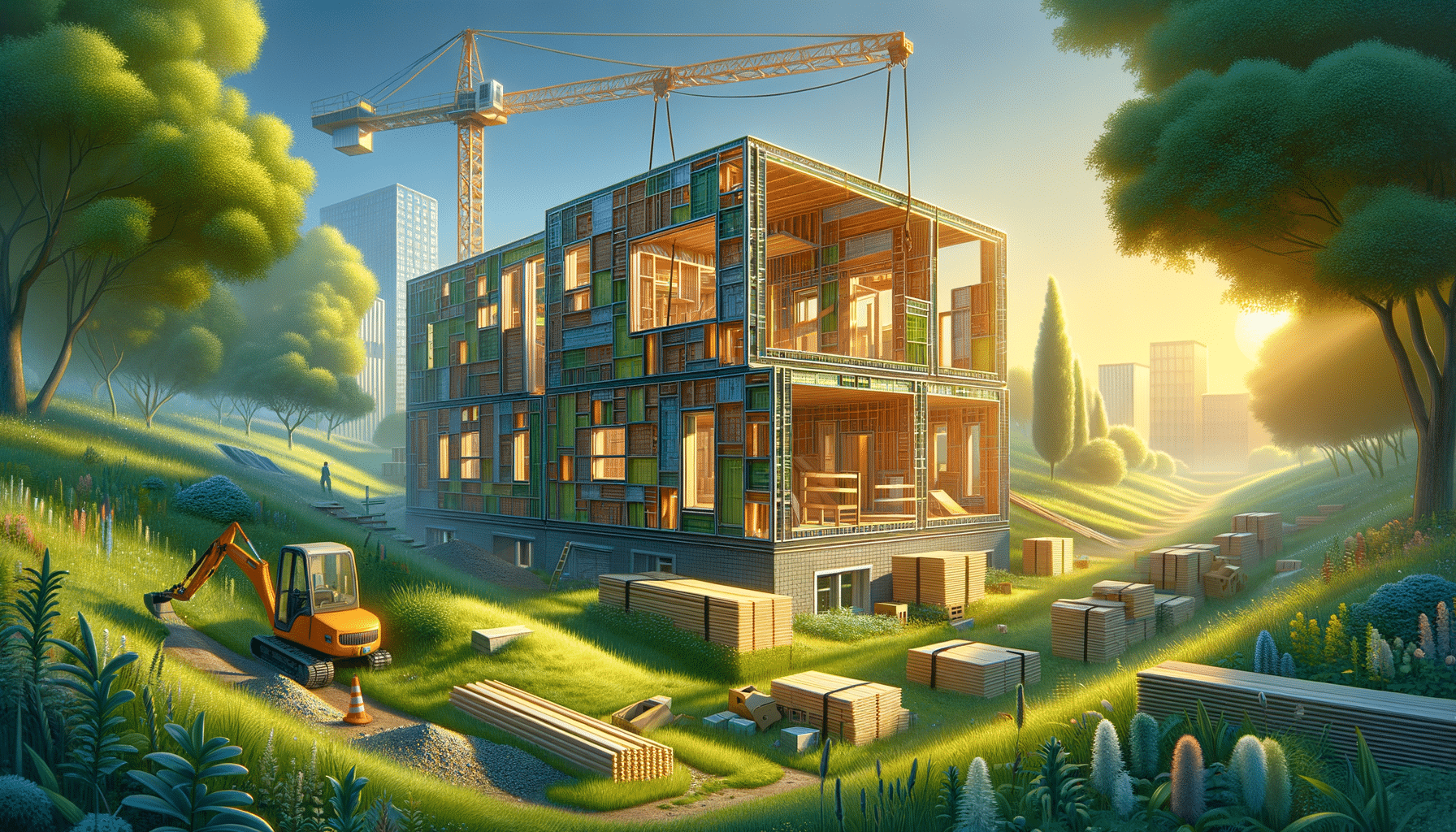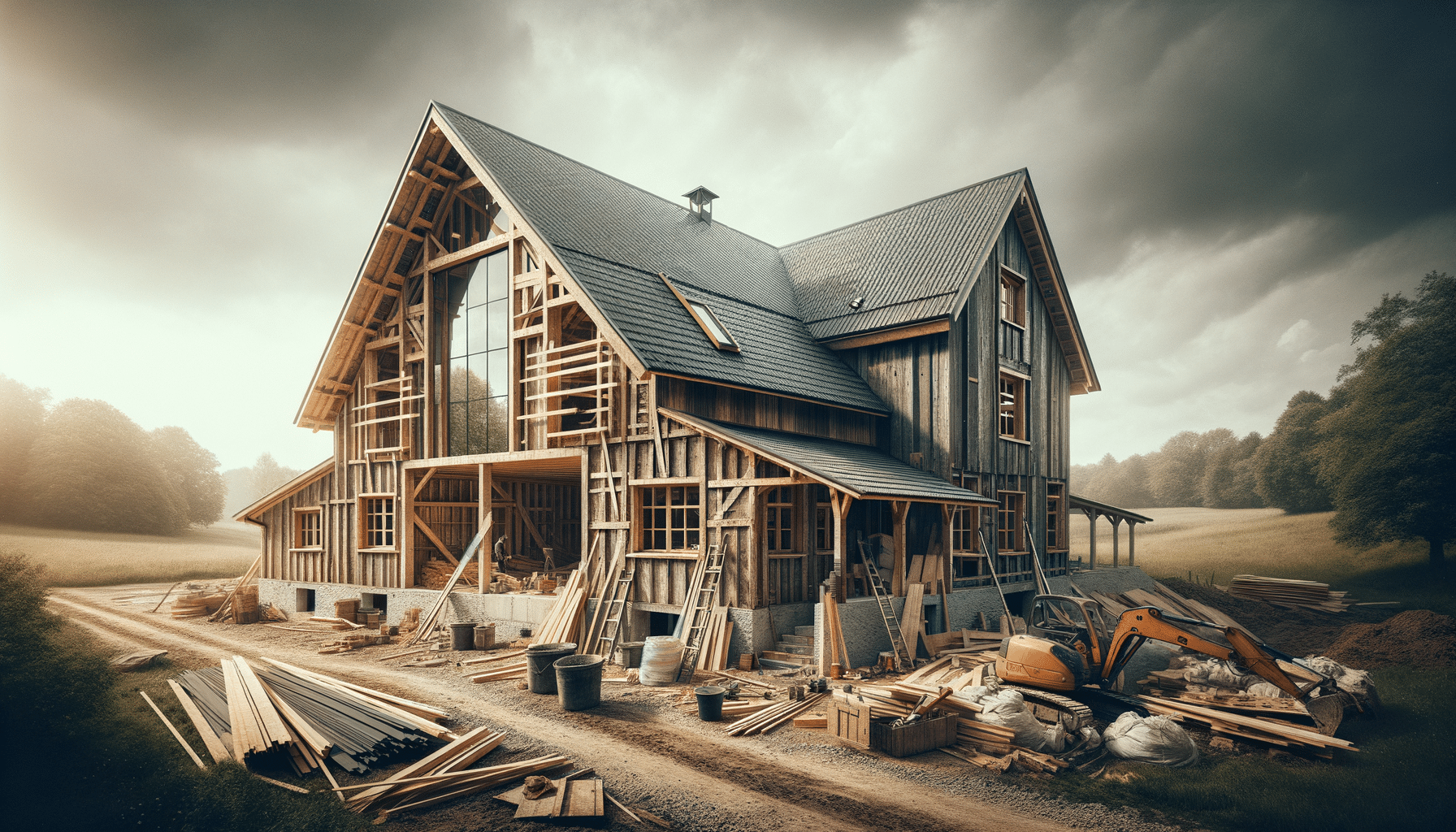
Exploring Modular Home Dealers with Financing Options
Introduction to Modular Homes
Modular homes have gained significant popularity in recent years due to their affordability, efficiency, and customization options. Unlike traditional homes built on-site, modular homes are constructed in sections or modules in a factory setting and then transported to the site for assembly. This method not only reduces construction time but also minimizes waste and environmental impact. As a result, modular homes offer a sustainable and cost-effective housing solution.
One of the key factors driving the demand for modular homes is the flexibility in design and the ability to customize layouts according to individual preferences. This makes them an attractive option for first-time homebuyers, retirees, and anyone looking to downsize. Additionally, modular homes adhere to the same building codes and standards as traditional homes, ensuring quality and safety.
The availability of financing options through modular home dealers further enhances their appeal. By offering tailored financial plans, dealers make it easier for potential homeowners to invest in their dream property without the burden of large upfront costs.
The Role of Modular Home Dealers
Modular home dealers play a crucial role in the home buying process, acting as intermediaries between manufacturers and buyers. These dealers provide valuable insights and guidance on selecting the right home model, customizing features, and navigating the purchasing process. With a deep understanding of the modular construction industry, they can assist buyers in making informed decisions.
Dealers often maintain strong relationships with manufacturers, allowing them to offer competitive pricing and exclusive deals. They also handle logistics, ensuring that the modules are delivered and assembled efficiently on the buyer’s property. This comprehensive service reduces the stress and complexity associated with homebuilding, making the process seamless for buyers.
Moreover, modular home dealers are instrumental in offering financing solutions. By partnering with financial institutions, they provide various financing plans that cater to different budgets and credit profiles. This accessibility to financing is a significant advantage, especially for those who may not qualify for traditional home loans.
Financing Options for Modular Homes
One of the primary concerns for potential homeowners is securing financing. Fortunately, modular home dealers offer a range of financing options to accommodate diverse financial situations. These options include:
- Personal Loans: Unsecured loans that don’t require collateral, offering flexibility but often at higher interest rates.
- Construction Loans: Short-term loans that cover the cost of building the home, which can be converted into a mortgage once construction is complete.
- FHA Loans: Government-backed loans with lower down payment requirements, ideal for first-time buyers.
- VA Loans: Available to veterans and active-duty military personnel, offering favorable terms and no down payment.
Each financing option has its benefits and drawbacks, and modular home dealers can help buyers navigate these choices to find the most suitable plan. By understanding the buyer’s financial situation and goals, dealers can recommend the best financing strategy, ensuring a smooth path to homeownership.
Advantages of Dealer Financing
Opting for financing through a modular home dealer comes with several advantages. First and foremost, the convenience of having a single point of contact for both purchasing and financing simplifies the process. This integration allows for better communication and coordination, reducing the chances of delays or misunderstandings.
Dealer financing often comes with competitive interest rates and flexible terms. Since dealers have established relationships with lenders, they can negotiate favorable terms on behalf of the buyer. This can result in lower monthly payments and overall cost savings over the life of the loan.
Additionally, dealer financing can improve the likelihood of loan approval. Dealers work with a network of lenders who understand the modular home market and are more willing to finance these types of properties. This can be particularly beneficial for buyers with less-than-perfect credit or those who have been turned down by traditional lenders.
Conclusion: Making Homeownership Accessible
Modular homes represent a modern, efficient, and customizable housing solution. With the added benefit of dealer financing, these homes become more accessible to a wider audience. Whether you’re a first-time buyer or looking to downsize, modular homes offer a practical and appealing option.
By leveraging the expertise of modular home dealers and exploring various financing options, potential homeowners can embark on their journey with confidence. The combination of affordability, design flexibility, and financial accessibility makes modular homes an attractive choice in today’s real estate market.
Ultimately, the collaboration between modular home dealers and financial institutions plays a pivotal role in making homeownership dreams a reality. With continued advancements in construction and financing, the future of modular homes looks promising, offering an innovative path to sustainable living.


